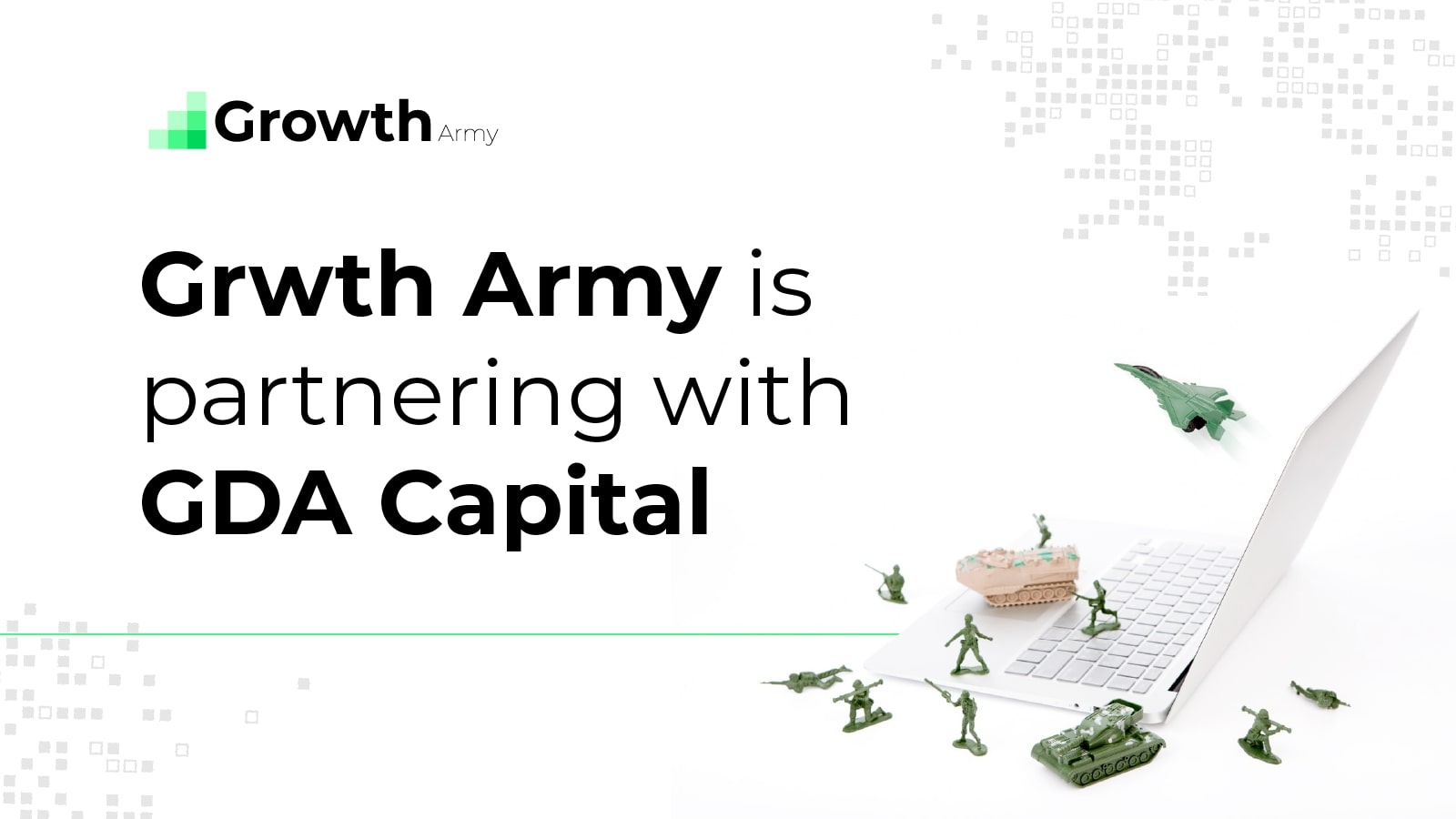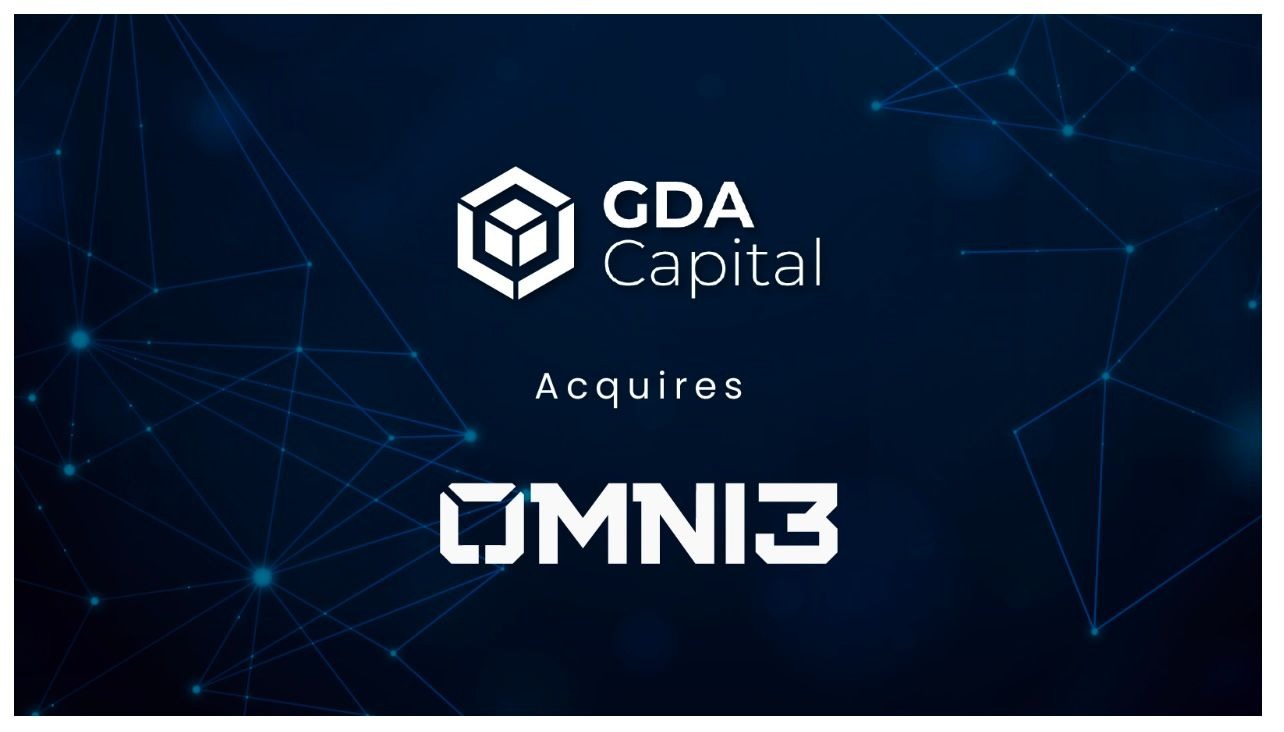Welcome to the 55th edition of ‘The Digital Asset Digest’. Today, we go over our favorite DeFi projects and explore worldwide crypto regulations.
SNIPPETS
Payments giant FIS makes another crypto move, expanding in Europe
Source: Payments Dive
“The giant payments processor FIS, also known as Fidelity National Information Services, is locking arms with United Kingdom-based cryptocurrency exchange CEX.IO to offer a new line of debit cards in the United Kingdom and other parts of Europe, FIS said in a May 19 press release.”
Sharp crypto and stock markets swings to continue until the end of June, says market strategist
Source: Finbold
“National Securities‘ chief market strategist Art Hogan has projected that the ongoing market turbulence will continue until the end of June despite the current trading week beginning on a positive note.”
HSBC steers clear of Bitcoin offerings for clients
Source: CryptoSlate
“London-based HSBC Holdings, one of the world’s biggest and Europe’s second largest bank, has no plans to offer Bitcoin or crypto products to its clients, a report on news outlet Reuters said today. “
Ripple Joins Top Crypto Exchanges in Shifting 238 Million XRP
Source: U.Today
“Ripple fintech decacord has helped several major crypto trading venues to transfer almost 240 million XRP, while XRP-friendly Bybit bans access to Chinese clients”
Indonesia plans to issue a central bank digital currency
Source: The Block “Bank Indonesia, the central bank of Indonesia, is planning to issue a digital currency to speed up payments.”
TOP GAINERS

TOP LOSERS

INDUSTRY WIDE SNAPSHOT

MARKET OUTLOOK
Top 3 DeFi Projects
The emergence of decentralized finance or DeFi has probably been the most intriguing aspect of this market cycle. After years of experimenting with digital assets on the blockchain, developers seem to have figured out how to create financial instruments without the need for intermediaries, credit scores, identities, or even collateral. DeFi projects have been gaining more mainstream attention, as these financial instruments see further adoption.
Here are the top three DeFi projects investors and developers need to keep an eye on.
AAVE
The AAVE protocol has been one of the most successful DeFi projects in recent years. The platform allows users to borrow or lend digital assets. These smart contracts can allow lenders to extract double-digit interest rates and allow borrowers to use leverage without the need to prove their identity or provide credit scores.
AAVE developers have also been aggressively pushing the envelope with new DeFi innovations. They pioneered the concept of a flash loan – a massive amount of leverage offered without the need for capital as long as it’s paid back within a single transaction. Developers are now working on credit delegation, where lenders can delegate their credit to someone else, and a private pool for institutional investors to experiment with.
Chainlink
DeFi projects are built on blockchains, which means they’re only compatible with on-chain data. The entire industry is insulated from the traditional web which has a treasure trove of data gathered over three decades. Chainlink, as the name suggests, wants to solve that by serving as a bridge between on-chain and off-chain data.
This enables infinite new use cases that combine smart contracts and decentralized protocols with real-world data. Weather data gathered by sensors, market data published by stock exchanges, property data published by regulators, and census data published by governments can now be used with smart contracts and digital assets using Chainlink.
If it gains more traction, Chainlink could be one of the most consequential DeFi projects in crypto history.
Uniswap
Uniswap allows users to easily trade or swap their digital assets. The platform uses smart contracts to create a liquidity pool from users willing to deposit their digital assets. This liquidity is used to allow other users to swap their assets for other assets in real-time with minimal fees. Part of those fees is then shared with the original liquidity providers.
In short, this is an exchange marketplace without market makers or financial intermediaries.
Final thoughts
The DeFi projects listed above have attracted billions of dollars in recent years. Yet the industry is relatively nascent and has plenty of room to further disrupt traditional finance. As the market matures and more capital floods in, these protocols could reshape the way people access credit, buy properties, create wealth, and tap into existing assets.
EXPLORING NEW IDEAS
The State of Crypto Regulations Across the World
The emergence of a brand new asset class is a once-in-a-generation occurrence. Commodities, private equity, real estate, stocks, and bonds have been trading for centuries. This week, Bitcoin was officially added to the list by Goldman Sachs.
Since the emergence of new asset classes is so rare, regulators across the world are simply unprepared for it. Most countries don’t have concrete rules about tax treatment, estate planning, cross-border transfers, and fundraising through digital assets. Many can’t even figure out if these digital assets are currency, commodities, or property.
Here’s an overview of the ways regulators have attempted to implement rules on crypto assets and decentralized finance in 2021.
Banned
Some countries have taken a hostile approach to this asset class. As of 2021, seven nations including Pakistan, Bangladesh, Nepal, Egypt, Algeria, Morocco, and Bolivia have blanket bans on cryptocurrencies. This means the buying, selling, trading, custody, and mining of any digital asset is considered illegitimate by the state regulators.
These reluctant jurisdictions risk lagging behind the rest of the world as digital assets gain more traction and become mainstream.
Super powers
Fortunately, the two largest and most critical economies in the world haven’t banned digital assets. However, they haven’t fully embraced this emerging economy either. The United States already taxes cryptocurrency transactions and now wants users to make more disclosures about their activities. Meanwhile, China dominates the critical Bitcoin mining industry but has made several attempts to crackdown on the sector in recent years. At the time of writing, Bitcoin and other crypto-assets are legal in China but regulations remain opaque.
As an emerging superpower, India could be the dark horse in this race. Indian regulators have been considering a ban, but haven’t implemented one yet. However, developers and young investors across the nation have already adopted digital assets in a big way. If India changes its stance on these assets, the geopolitical winds could change swiftly.
Early Adopters
Some jurisdictions have fully embraced crypto assets to help attract talent and capital from across the world. When the island nation of Malta introduced clear regulations and standards for digital assets in 2017, it quickly earned the moniker of “Blockchain Island.” Over the years, the country’s favorable regulations have attracted investors and entrepreneurs.
Canada is another crypto-friendly jurisdiction. Last year, the country’s financial regulators approved the listing of several Bitcoin and Ethereum exchange-traded funds. These ETFs are the first of their kind and now trade on the Toronto Stock Exchange.
Much of Europe is considered crypto-friendly too. Some of the most prominent crypto projects are based in cities such as Zug, Amsterdam, Prague, Ljubljana, and Vilnius.
Summary
The emergence of a new asset class is extremely rare, which is why regulators are not prepared to handle such innovations. This is why crypto regulations are far from universal right now. Some countries such as Pakistan are outright hostile, while others such as Malta have fully embraced digital assets. However, the largest and most powerful economies have vague rules and unclear regulations that may be holding this industry back, for now.
TOKEN OF THE WEEK
AAVE
One of the promises of the decentralized internet is a financial system that doesn’t play by conventional rules. On the decentralized web, financial transactions can be completed based on completely new parameters and timescales.
Our token of the week, AAVE, is a protocol built to deliver these decentralized financial tools to everyone. Here’s a closer look.
Background
Launched in 2017 and based on the Ethereum network, AAVE is a decentralized lending platform. The platform allows anyone to lend crypto assets to earn interest. These assets can be borrowed by others on the platform.
Interest rates for these transactions are often far better than traditional banks. This allows users to borrow certain assets cheaply while earning lucrative returns on other assets.
At the time of writing, the platform’s assets exceed $14.5 billion, making it one of the most successful projects in the emerging field of decentralized finance or DeFi.
Use Cases
The core use case for the AAVE protocol is the ability to lend or borrow crypto assets. Traditional banks simply cannot deal in these assets yet and centralized platforms have counterparty risks associated with them. As a decentralized, open-source platform, AAVE allows users to lend and borrow these digital assets without the need to prove their identity or provide a credit report. Instead, the loans are based on over-collateralization – locking up an asset that is worth more than the loan.
The AAVE protocol also allows users to borrow without any collateral if they can prove that the assets will be returned. Since digital assets on the Ethereum network can interact with each other, the protocol allows a user to take a substantial loan for zero collateral as long as it is used in a transaction that returns the borrowed asset right away. This technique is called a “flash loan” and is considered the greatest innovation of the AAVE protocol.
AAVE has also pioneered the concept of “credit delegation.” This new feature allows a user to lend a digital asset on the platform and earn extra returns by delegating their credit to other users without the need for collateral. These loans are enforced with either legal documents off-chain or smart contracts on-chain.
Tokenomics
Although the protocol was created by a group of developers in London, it operates as a decentralized system with open participation from users. Users can buy AAVE tokens that allow them to vote on how the platform is managed and how the framework is evolved over time. Effectively, the platform is operated by these governance tokens. The team refers to this as “AAVEnomics.”
At the time of writing, each AAVE token is worth $300 and the collective market capitalization of the platform is $3.8 billion.
Recent developments
Last week, the co-founder of Aave, Stani Kulechov, revealed that the Aave protocol has built a “private pool” for institutions to “practice” before getting involved with the DeFi ecosystem. The private pool will include know-your-customer (KYC) and anti-money laundering (AML) restrictions to help financial institutions experiment with DeFi while complying with local regulations.
GETTING TECHNICAL
Our team is based in Canada and just had a long weekend. As such, this column won’t be available this week.
WEEKEND READ
UPenn’s Wharton: DeFi Can “Transform Global Finance”
Source: NewsBTC “The University of Pennsylvania’s Wharton School of Business is consistently seen as one of the best business programs in the U.S., and is the oldest collegiate school of business on the globe. In a new ‘Blockchain and Digital Asset Project’ report, titled “DeFi Beyond the Hype”, Wharton School contributors detail the ins and outs of DeFi, and conclude that DeFi has the ‘potential to transform global finance’ ”
CLOSING THOUGHTS
After a long hiatus from reports, you can look forward to our NFT report at the end of this week. But in the meantime, you can look forward to our upcoming NFT Summit on June 1st/2nd. We’ve got a great list of speakers lined up, and you’ll be an NFT expert by the time the summit is over.




